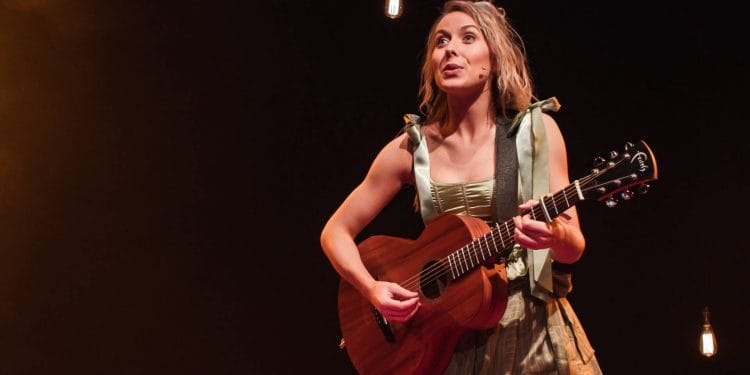 From the very beginning, Tink makes it very clear this show is not about Tinker Bell, the tiny fairy whose only personality trait is being in love with a man-child who refuses to grow up, and her competition with another girl that loves him. This Tink is compelled to tell her own fairy story, a story about growing up, being a woman, and the societal pressures that come with both.
From the very beginning, Tink makes it very clear this show is not about Tinker Bell, the tiny fairy whose only personality trait is being in love with a man-child who refuses to grow up, and her competition with another girl that loves him. This Tink is compelled to tell her own fairy story, a story about growing up, being a woman, and the societal pressures that come with both.
Tink tells the story of her life from primary school to the beginning of secondary school, and the relationships with her friends Olivia and Chloe, and her mother. As a young girl, Tink was big, bold and brilliant, but as her teenage years progress, she begins to, well, shrink. She reflects on how factors such as patriarchy, social media, and generational trauma have all affected her, and how she can find herself and learn to grow again.
Though the story has nothing to do with Peter Pan, the play invites comparisons between the real Tink and the misogyny inherent in the ‘story from Victorian times’, as Tink puts it. Tink is a far more honest and relatable portrayal of being a girl and challenges you to think about why so many girls are portrayed so badly and the negative affect this can have.
The performer Kat Kleve delivers a charming performance as Tink. As the child Tink, her performance is very convincing and precise, conveying that feeling where you feel like you can achieve anything even though you still need a grownup to open your fruit juice for you. The humour of the piece is found in its gentle observations of human behaviour. As we seen Tink get older, she gives Tink all the frustrated complexity of a teenage girl, who behind the melancholy and confusion just wants to live a happy life.
The show is punctuated during many of its emotional moments by some beautiful songs played on the guitar, which help to convey the happiness or the emotional turmoil that Tink is feeling. But disguised as a quirky musical, Tink is an intelligent treatise and feminist statement about the power of womanhood and the things in life that seek to suppress this power. Though Peter Pan refuses to grow up, Tink shows us the pain and pleasure of growing up in all its messy beauty.

















